Understanding how certain foods can impact kidney function is crucial for maintaining overall health. This blog post explores 11 foods that may harm your kidneys and provides healthier alternatives. Discover how simple dietary changes can support kidney health and well-being.
Red Meat
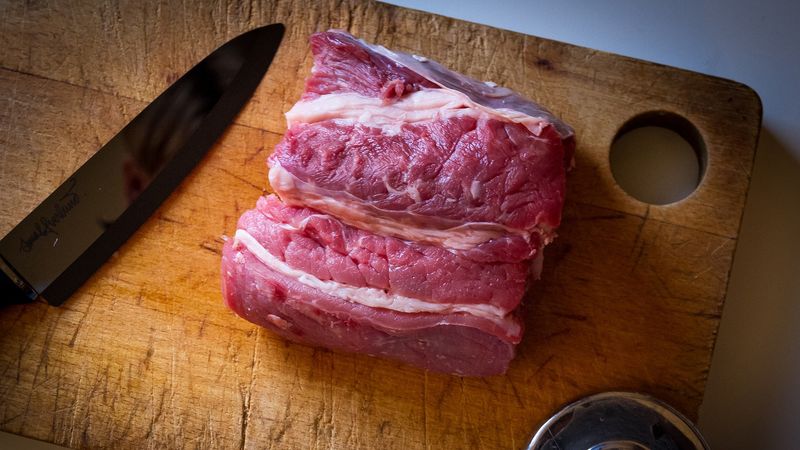
Red meat, such as beef and pork, is often celebrated for its rich flavor and satisfying texture. However, its high protein content can strain the kidneys, especially for those with pre-existing kidney conditions.
Red meat is also laden with saturated fats, contributing to increased cholesterol levels. This can further complicate kidney health by affecting blood pressure and heart function.
Opt for leaner proteins like chicken or plant-based alternatives such as tofu, which are gentler on the kidneys. These options provide essential nutrients without overburdening the body’s filtration system. Discover the taste of health with smarter protein choices.
Salt
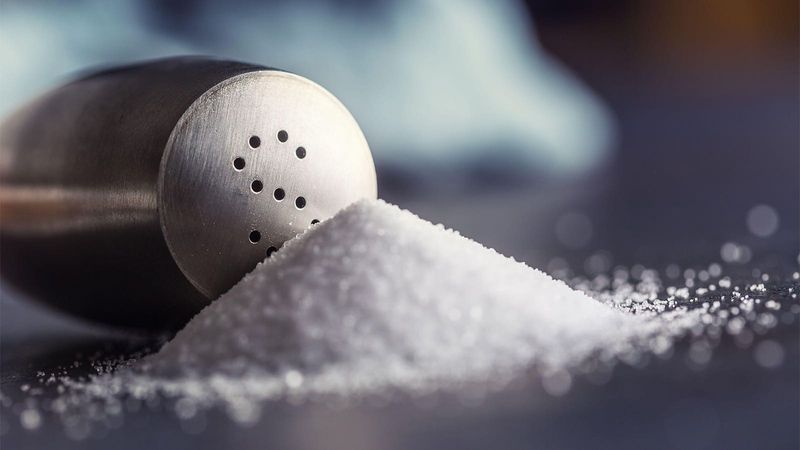
Salt, an essential seasoning in many dishes, enhances flavor but poses risks to kidney health. Excessive salt intake can lead to high blood pressure, a known factor in kidney damage.
High sodium levels force the kidneys to work harder, potentially accelerating kidney disease progression. It’s wise to limit salt and explore alternative seasonings like herbs and spices.
Using fresh ingredients can also enhance flavor without sodium. Embrace a culinary journey that favors health and flavor, ensuring your kidneys don’t bear the brunt of excessive salt consumption.
Processed Foods

Processed foods, including chips and ready-to-eat meals, are convenient yet detrimental to kidney health. These often contain high levels of salt, preservatives, and unhealthy fats.
Such foods can elevate blood pressure and cholesterol, increasing the risk of kidney damage. Transitioning to whole, unprocessed foods helps mitigate these risks.
Fresh fruits, vegetables, and homemade meals offer balanced nutrition and are kinder to your kidneys. Rediscover the art of cooking with natural ingredients, and let your health flourish without the hidden dangers of processed foods.
Sugary Beverages

Sugary beverages like sodas and energy drinks provide instant refreshment but can harm kidneys over time. Their high sugar content spikes insulin levels and contributes to weight gain.
These beverages are linked to increased risks of diabetes and heart disease, both of which negatively affect kidney health. Choosing water or herbal teas offers hydration without added sugars.
Infuse your water with fruits for a refreshing twist. Prioritizing hydration from natural sources supports kidney function while keeping you energized and healthy.
High-Oxalate Foods
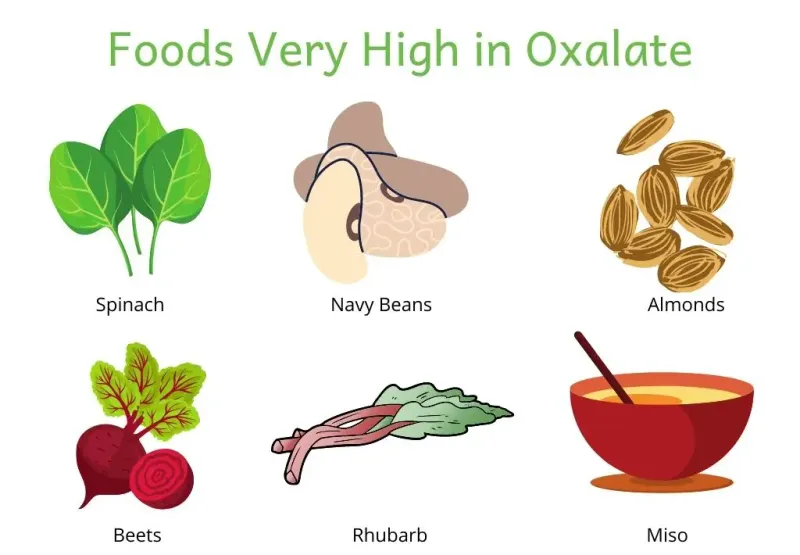
Oxalates, present in foods like spinach and nuts, can contribute to kidney stone formation in susceptible individuals. These compounds bind with calcium, forming stones that may obstruct kidney function.
While rich in nutrients, high-oxalate foods require moderation, especially for those prone to kidney stones. Pairing with calcium-rich foods can help reduce stone risk.
Consider exploring lower-oxalate alternatives like kale or cabbage, which still offer vitamins without the heightened risk. Balancing oxalate intake ensures your kidneys remain stone-free and healthy.
Artificial Sweeteners
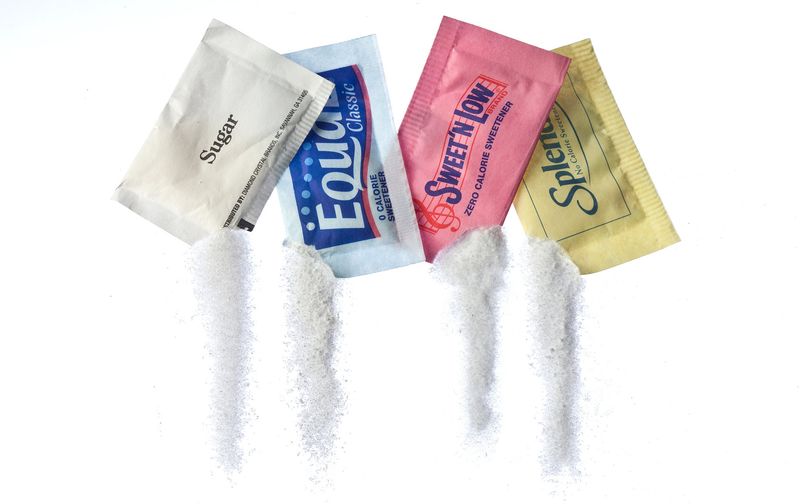
Artificial sweeteners, often marketed as a healthful alternative to sugar, can have adverse effects on kidney function. Some studies suggest that these substitutes may alter kidney filtration rates.
While offering calorie-free sweetness, overconsumption might lead to complications, especially in individuals with existing kidney concerns. Balance is key.
Opt for natural sweeteners like honey or stevia, which can satisfy your sweet tooth without compromising kidney health. Embrace natural flavors and enjoy sweetness that nourishes and protects.
Caffeine

Caffeine, found in coffee and tea, is a beloved stimulant that perks up the mind. Yet, excessive consumption can strain kidneys.
Caffeine acts as a diuretic, increasing urine production and possibly leading to dehydration. This dehydration can challenge kidney function over time.
Moderation is vital. Enjoy coffee or tea in limited amounts and balance with plenty of water. Thriving on mindful caffeine consumption ensures your kidneys function smoothly, supporting an alert and healthy lifestyle.
Dairy Products

Dairy products, including milk and cheese, are rich in calcium and protein, essential for bone health. However, excessive dairy can burden the kidneys.
High phosphorus content in dairy may disrupt mineral balance, affecting kidney function. Consider lower-phosphorus options or plant-based dairy substitutes.
Almond milk or soy-based cheeses offer similar nutrients without overloading the kidneys. Enjoy dairy alternatives that provide nourishment and support kidney health.
Canned Soups
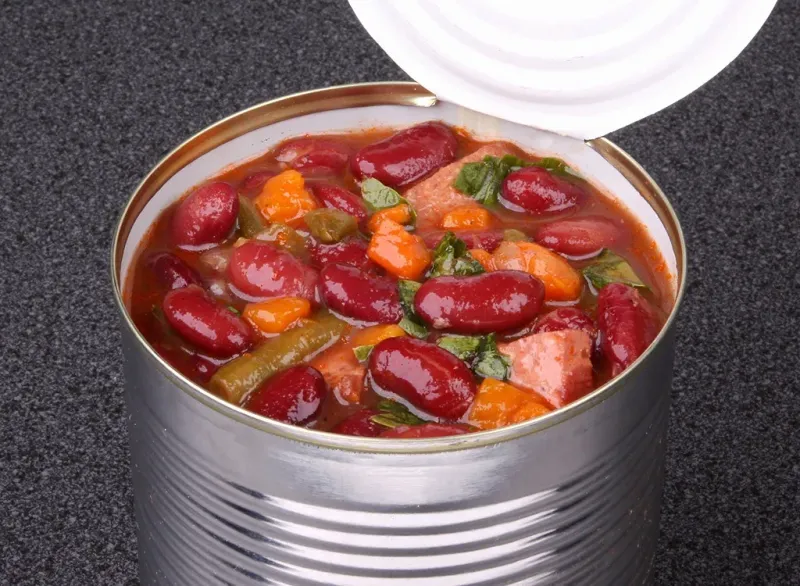
A warm bowl of soup may seem comforting, but canned varieties often hide a less savory truth. They’re typically loaded with sodium, a known adversary to kidney health.
High sodium intake can elevate blood pressure, increasing the strain on the kidneys. Opt for low-sodium or homemade options to enjoy the same warmth without the risk.
Surprisingly, even “healthy” labeled soups can be misleading, so read the labels carefully. A simple swap could make all the difference for your kidneys.
Fun fact: Ancient cultures believed soup could cure ailments, but modern versions may do more harm than good!
Instant Noodles
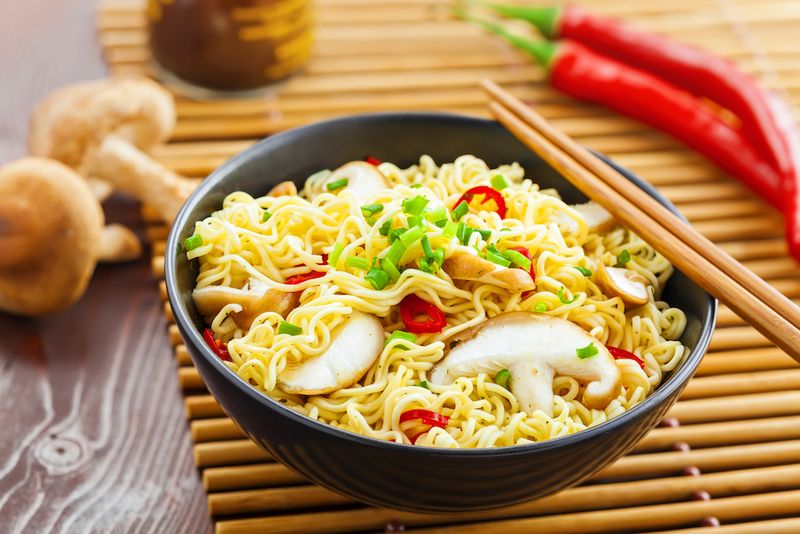
Instant noodles are a quick fix for hunger but can slowly sabotage kidney health. These convenient meals are infamous for their excessive sodium and preservatives, which can overwork the kidneys.
Frequent consumption may lead to elevated blood pressure and fluid retention, both risky for kidney function. Preparing noodles with fresh vegetables and reduced seasoning can mitigate these effects.
Did you know? Instant noodles were first created in Japan during food shortages, but their modern-day popularity comes with a hidden health cost. Choose wisely to enjoy them without worry.
Frozen Meals
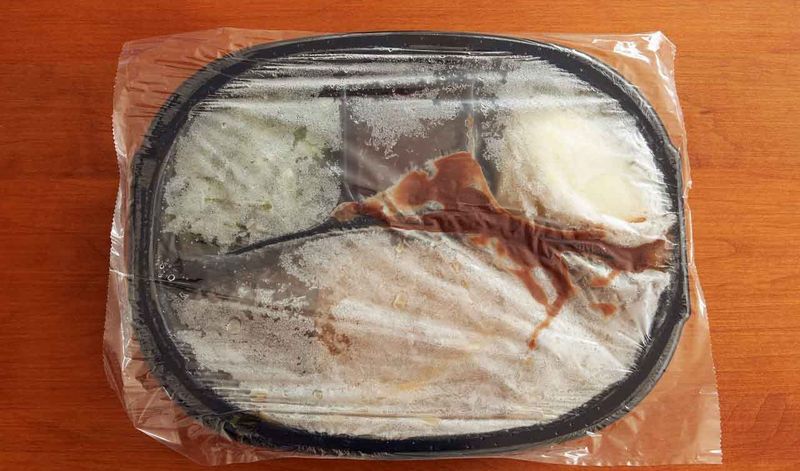
Frozen meals offer convenience but at a potentially steep price for your kidneys. Often packed with preservatives and high levels of sodium, these meals can contribute to kidney strain over time.
While they’re handy for fast-paced lifestyles, regular consumption could lead to chronic kidney issues. Opt for fresh, home-cooked dinners whenever possible to nourish your body gently.
Interestingly, the concept of frozen meals originated during wartime to feed soldiers efficiently. Today, being aware of their effects can help maintain a healthier life balance.
Leave a comment